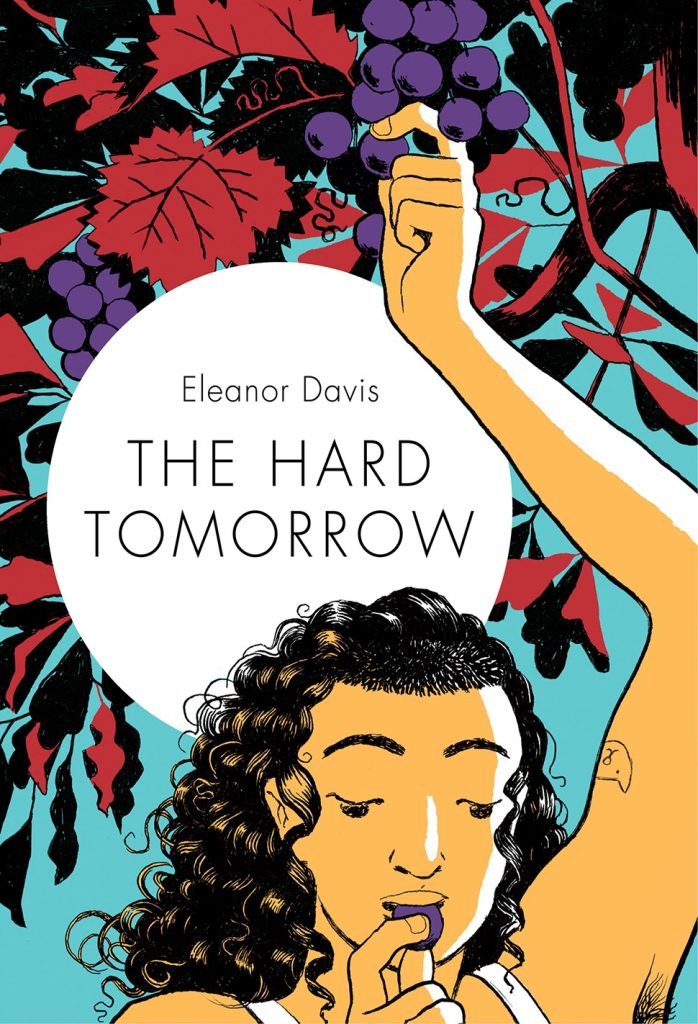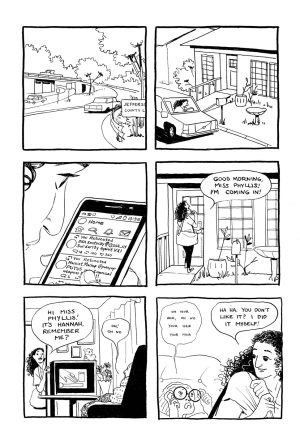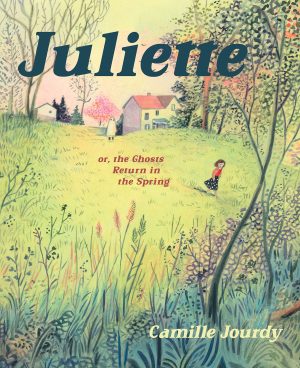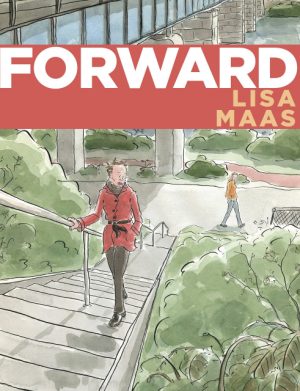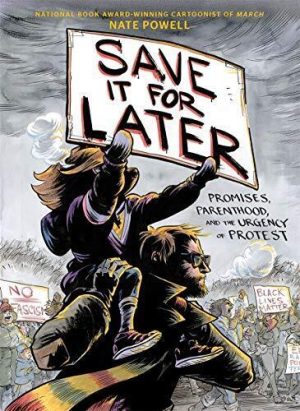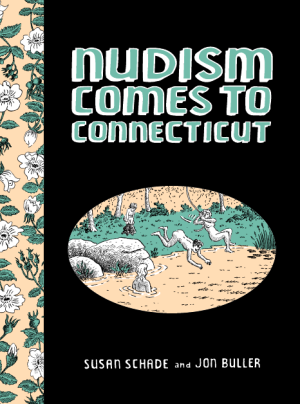Review by Frank Plowright
Were it not for the more advanced phones you’d think it was the mid-1990s based on the tunes the radio’s banging out as Hannah drives around, yet The Hard Tomorrow is set in the near future. Hannah and her husband live in a caravan while planning to build their own home. They’re also trying to have a baby, and in the meantime Hannah is active with assorted protest groups when she’s not at her job calling in on the elderly and infirm.
Hannah is someone who cares, and her near future is extrapolated from ours when civil liberties have been further eroded, to the level where a megaphone is considered an offensive weapon. Eleanor Davis applies nuanced storytelling whereby readers pick things up as they go along rather than everything being laid out up front, and this is both a virtue and a weakness. As not everything is explained, what characters do and say has to be taken at face value, and this occasionally leads to an uncertain moment, although that could be deliberate.
Davis takes a wide sweep around current anti-authoritarian views ranging from the paranoid believer in conspiracy theories to Hannah’s more reasoned desire that if she does have a child, the world in which it lives will be a better place. Yet they are dealing with an unreasonable government unconcerned about coercion as a weapon. Davis avoids mentioning current politicians, and her only commentary is from people experiencing events, which provides a reactive immediacy.
Artistically Davis keeps everything simple, characters not greatly expressive even in the midst of emotional turmoil, yet she knows how to convey something with a glance, particularly from the intense Tyler. The strongest artistic sequence is a scene of violence and pandemonium around midway. Those page designs and viewpoints bringing home the terror and chaos of helmeted, armoured and armed police piling into a peaceful protest, with the contrasting intensity of black and white used symbolically.
Valid points are made about today, but this is narratively unsatisfying for its naturalistic approach, and for one big scene logic is entirely absent. The implication is technology advancing to individual murder by drones, yet the target is unconvincing and insignificant. Furthermore one brutal and significant act during an intense scene is ignored in the aftermath, despite fundamentally undermining Hannah’s idealism. An overly sentimental ending isn’t great, but then hammered home through repetition. Why?
The Hard Tomorrow has moments, but it’s really difficult to see why it generated such high praise on release.
